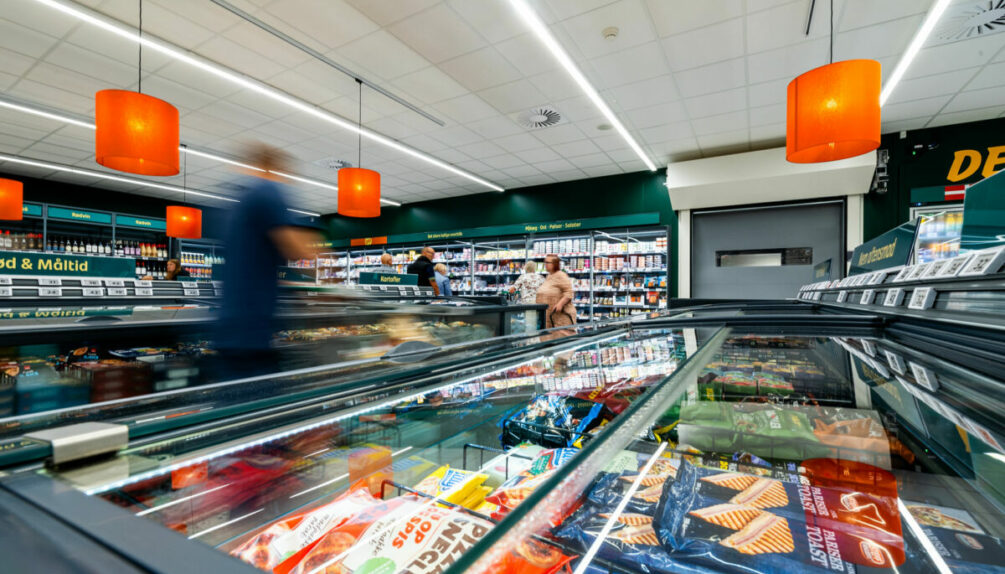A new ‘Smart Store’ has opened in Nordborg, Southern Denmark, showcasing a range of technologies which limit food waste, strengthen food safety and allow the retailer to be 50% more energy efficient than a regular supermarket.
Industrial machinery manufacturer Danfoss is behind the Smart Store project, installing innovative refrigeration and heat capture and reuse technology which reduces energy consumption and operating costs in the 1,500sq m space. Among the features are: high-end case controllers which optimize fridge performance; and a heat recovery unit which captures excess heat from cooling systems and redistributes it around the store and local community through a heating network servicing the district (saving up to 90% in heating costs).
Danfoss also uses a novel approach which integrates refrigeration, heating, ventilation and air conditioning, further reducing the supermarket’s carbon footprint.
This supermarket is purpose-built for the world ahead of us
Other cost-saving measures include installing doors on fridge and freezer cases; swapping incandescent bulbs for LED lights, fully powered by solar energy from rooftop panels; and implementing Alsense Food Retail – food waste reduction scheme operated via IoT (Internet of Things) devices and a cloud service platform which gives the eco store real-time insights into how it can dispose of less food. The technology comes with a 24/7 monitoring feature and alarm system, to alert and dispatch technicians should a freezer break down overnight.
Jürgen Fischer, president at Danfoss Climate Solutions, says the store will operate a ‘live testing site’ where other innovative technologies can be trialled.
“We have developed this new Smart Store supermarket with partners and customers to demonstrate that it is possible to build a climate friendly and super-efficient facility, using world-class heating and cooling technology. Our new Smart Store proves that the future is now. This supermarket is purpose-built for the world ahead of us; a world of more urbanization, larger populations, greater energy demands, a growing need for cooling, and efficient food storage.”





